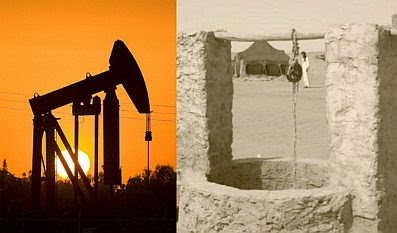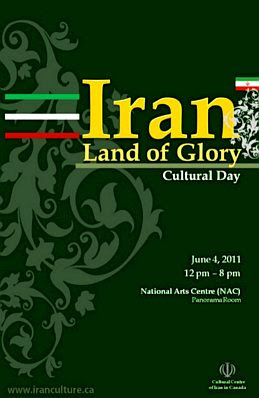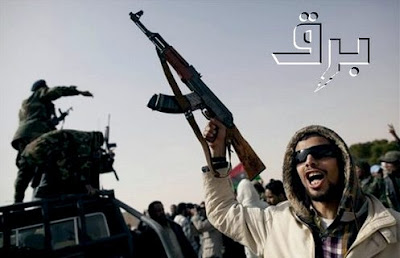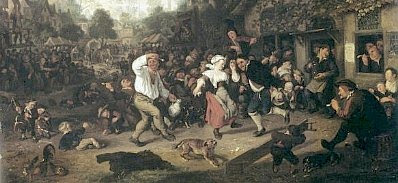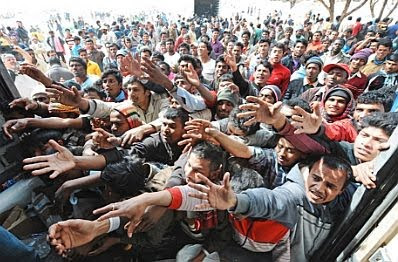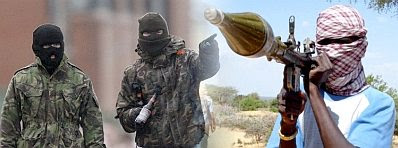
Part One: The Idiot Paradigm
Long-time readers are familiar with the writings of El Inglés. His lucid analyses of the self-destructive trajectory of the 21st-century West — particularly Britain — have been appearing in this space for almost four years.
His most controversial essay to date, “Surrender, Genocide… or What?”, was posted here a little over three years ago. Along with the LGF Wars several months prior to that, El Inglés’ masterwork was one of the major causes of our conversion to what I call “hard-eyed realism”.
Pajamas Media had an attack of the Screaming Nazi Heeber-Jeebers over the essay, and terminated our contract as a result. The shock helped purge us of any lingering fears about what might happen to us. There was nothing to be afraid of any longer — now we knew the worst that could befall us. We had been reviled and shunned, called “neo-Nazis”, “white supremacists”, and “bigots”, and were finally abandoned by our advertisers.
After that we had nothing left to lose. We were free.
And it’s been relatively clear sailing ever since.
* * * * * * * * * * * * * * *
El Inglés’ latest piece is another well-researched analytical paper. Like his previous efforts, it is certain to cause the same hand-fluttering alarm amongst those who decline to contemplate the ugly regions into which our current political mess is ineluctably moving us. This analysis is grimmer, more detailed, and pulls fewer punches than his earlier work. No one who is hoping for an easy way out should read what he has to say here.
For all the good it will do, I’ll provide the same caveat that I did back in April 2008: this paper is descriptive, and not normative. None of us wants to experience any of the possible outcomes that El Inglés is predicting. However, as his irrefutable logic demonstrates, we will have no alternative. Our only choices are between bad, worse, and apocalyptic, and the last option seems to be the hapless preference of British politicians from all three major parties.
The paper below examines the likely violent confrontation that lies ahead. El Inglés compares the coming Muslim Troubles in Britain with the Troubles in Northern Ireland, and highlights their similarities and differences. Some of the differences seem negative — for example, there will be no equivalent of the Good Friday Agreement to end the Muslim Troubles — but there are also surprising reasons for optimism, as you will soon discover.
For those readers who don’t want to contemplate any of these awful scenarios, and think ill of those who predict them: Just skip this series of essays. They contain no good news.
We offer a variety of other articles that are not so grim, and you will find numerous other Counterjihad sites that examine the scandals and shocking news about Islamization without ever taking a hard-eyed realistic look at what lies ahead.
For the rest of you: Take a deep breath. This is the shape of things to come.
This post is the first of five parts. This entire series will be made available as a single document in pdf format after the final part is published here.

Our Muslim Troubles: Lessons from Northern Ireland
by El Inglés
I. Foreword
I was born too late for anything other than the tail end of the Troubles to really enter my consciousness directly. As would have been true for many people of my age, I had no particular interest in politics when the Good Friday Agreement was signed in 1998, and lived too far from any area likely to be attacked by the IRA for their increasingly infrequent and non-lethal acts of terrorism to make much of an impression on me. The Omagh bombing is the only Irish republican terrorist attack of note that I can remember being aware of at the time.
My total ignorance of Irish history and the Troubles was something that I became increasingly aware of over time. This awareness heightened fairly rapidly after I somehow commenced a second (and non-remunerative) career as an analyst of the possibility of violent conflict between Europeans and Muslims in Europe. Eventually I decided to address this intellectual deficit and embarked upon an open-ended and entirely self-directed research project into the Troubles. On doing so, I not only discovered much fascinating history, but also a massive treasure trove of insights into the type of conflict likely to erupt eventually between British patriots keen on keeping Britain British and seditious Muslims keen on turning it into something rather different.
However immodest it may sound, the utter lack of concern about or interest in the Troubles that prevailed over the first three-and-a-bit decades of my life has given me one key advantage in trying to draw lessons from them. British though I am, they are nonetheless history to me, in that they do not possess any particular emotional heft one way or the other, and therefore allowed me to approach them in what I hope has been a largely dispassionate manner.
I explain this not out of some sudden autobiographical urge, but out of a desire to have taken seriously by readers the following claim: nothing I say about the Troubles or any actor within them, state or non-state, should be taken as implying any value judgement thereupon. As suggested above, I view the Troubles selfishly, as a huge body of data existing to be mined for an advance understanding of what we British are likely to fairly shortly find ourselves involved in with our Muslim fifth column. Retrospective approval or condemnation of the various parties to the Troubles I will leave to others.
II. Preliminary Note Concerning Assumptions
Before we commence this discussion in earnest, we need to dispense with the preliminary matter of explaining our assumptions, or, more accurately, one key assumption that will underpin the entire essay: that the UK government will vacillate uselessly in the face of ongoing Muslim immigration and consequent Islamization until we are plunged into a crisis, and probably for some time afterwards too. Cynics will mutter in response that few assumptions have ever been as safely made, but there is a serious point to be made here. There are already a number of European countries (such as Denmark and the Netherlands) in which committed and unrelenting opposition to the horrors of Muslim immigration is voiced daily by ever-more-effective political parties. How effective these parties will be in staving off catastrophe is another question, but at least they constitute real electoral choices, real chances to avert the disaster of a collapse into outright ethno-sectarian violence. As the situation degenerates in their respective countries, their support will undoubtedly grow and allow them, eventually, to form governments to deal with the problems in a way which offers some possibility of a real solution.
In contrast, and for reasons that we shall explore, there is as yet a complete and utter vacuum in this regard in mainstream British politics, a vacuum which looks likely to exist for some time yet. There is no obvious momentum towards the creation of a credible political alternative to the paradigm that insists that the Muslim presence in the UK is not problematic in and of itself, and that it will suffice for us to persuade a tiny minority of confused Muslim extremists that secular democracy is the way forward for the human race.
It is entirely possible that even an eruption of violent conflict between Muslims and British will fail to dislodge mainstream politicians from their idiot paradigm, at least for a time. As such, we will assume that the hypothetical violent conflict we examine in this document takes place in the context of a British government (or successive governments) that is (or are) essentially flummoxed by the nature of the problem and the nature of the best response. In contrast with the exceptionally clear-sighted Geert Wilders of the Netherlands, who appears to have no illusions whatsoever as to what his country faces or why, we must assume that we will be led by people who have no comprehension of the fundamentals of the situation they are faced with. The current, Conservative-led government is certainly a step upwards from the previous Labour government in this regard. As yet, however, it shows no outward signs of understanding what this country now faces as a consequence of several decades of Muslim immigration.
Of course it is conceivable that a figure could emerge in the UK to lead a government determined to push back against Islamic colonization. But analyses of a) a European people resisting Islamization with a government elected for the purpose, and b) a European people resisting Islamization after having descended into crisis thanks to a useless, dithering government, are two entirely different things. Given that the latter scenario seems vastly more probable in the British case, this document deals with it exclusively. In other words, we assume that the actions of the state will be focused on somehow desperately trying to contain the violent conflict in question while doing nothing to seriously address the key factors underlying it. This scenario is not nearly so unrealistic as it might sound. As we will argue elsewhere, violent conflict is a certainty if we continue to tread the path we are on at present, and the desperate fumblings British governments in the late 1960s and early 1970s that helped create and then exacerbate the Troubles should serve as a warning to those who assume the competency of government.
We note again that, deeply imperfect though it is, the current Conservative-led government has already started to detach itself from the toxic legacy of Labour on immigration, multiculturalism, and related matters. This is heartening stuff, rendering as it does the assumption that the British government will blunder uncomprehendingly into new, Muslim Troubles in the next two decades less likely than it would otherwise be. However, the assumption that this is what will happen is still the underlying assumption of this essay for the following reasons: a) any consideration of the course of events over the next two decades deals with so many parameters that some must be held constant to prevent the combinatorial explosion of possibilities derailing the entire analysis, b) though the British ship of state may have slowly started to change course, it is still far too early to know how effectively it can do so, and c) it is clearer analytically and more bracing psychologically to plot out the worst-case scenario and later consider the possibility that things could work out better, than to chart a more optimistic scenario and later be faced with the reality of things working out far worse. The future we describe here is probably the worst possible future Britain can face with regards to its Muslim population. Those who wish Britain and the British a better one should ask themselves how to help deliver it.
III. Why Conflict is Inevitable: Contingent Conflict vs. Organic Conflict
We must first understand why violent conflict is inevitable between British and Muslims if the breakneck population growth of the Muslim population of the UK is allowed to continue.[1] That relations between Europeans and their respective Muslim populations are, in general, poor and deteriorating, is hardly a matter for dispute. But what is there in this that allows us to conclude that an Islam-induced breakdown of civil order and subsequent violent conflict are inevitable in the UK?
We make a distinction here between two different types of conflict: contingent conflict and organic conflict. A contingent conflict is a conflict that is entered into because, at key decision points or forks in the road leading to said conflict, decisions are made that lead in the direction of war rather than peace. An organic conflict is a conflict that, though it will certainly be triggered by specific events that could, in principle, not have happened, was inevitable all along in that an unstable situation existed which must, sooner or later, have disintegrated into violence through some triggering event whose nature was of less significance than its mere occurrence. Needless to say, there is no definitive, rigorous way of determining which conflicts are or were organic and which contingent in nature, but the conceptual framework provided by this dichotomy is of use in understanding the nature of the conflict that awaits us in Britain.
More specifically, we claim that the Troubles were a contingent conflict but that our Muslim Troubles will be an organic conflict. Understanding the difference between these two conflict types is pivotal to any understanding of what European countries face as a consequence of the insanity of Muslim immigration.
The Road to the Troubles
Though the Troubles grew out of the long and bitter history of British involvement in Ireland, for our purposes it will suffice to move straight into the 20th century, the partition of Ireland, and the creation of the Northern Irish state.
Since its creation in 1921 as a direct consequence of the Irish War of Independence, the province of Northern Ireland (henceforth abbreviated to NI) was an anomaly in the United Kingdom, to an extent not commonly appreciated by most British people even today. Politically, it had been engineered in such a fashion as to assure the overwhelming dominance of its Protestant, British-origin majority. This engineering consisted primarily of the following:
- Restrictions on the franchise at local government level, which reduced the political influence of the Catholic minority
- Gerrymandering at the local government level that resulted in majority-Protestant councils even in majority-Catholic areas
- Privileged access to jobs and housing as a consequence of the previous two factors
- A draconian Special Powers Act that allowed the NI government to take exceptional measures to maintain law and order in the province
- A reserve military force, the B Specials, almost entirely Protestant, that was used in times of emergency to enforce public order vis-à-vis Catholic disorder
With the global political ferment of the 1960s, the Catholic population of NI began to mobilize politically to seek redress for these issues. The Northern Ireland Civil Rights Association (NICRA), founded in 1968, advocated entirely peaceful methods for doing so. At this time, the IRA (not yet split into the Officials and the Provisionals, something that would happen in late 1969), badly defeated in a wholly ineffective military campaign waged against the NI state from 1956-1962, had effectively ceased to exist as any sort of credible military force, and was a long way from the minds of most nationalists north or south of the border.
The British government of the day left matters largely to the NI Parliament at Stormont, the seat of Protestant political supremacy. Subsequent to the Partition of Ireland in 1921 and the passing of the Anglo-Irish Treaty in 1922, this seems to have been a pattern for all British governments, who wanted as little as possible to do with all matters Irish. The consequent lack of restraint imposed upon the Protestant political establishment in NI would turn out to be a major contributory factor to the collapse of ‘regular’ civil strife into civil conflict and guerrilla war.
We have claimed that the Troubles were a contingent conflict. What does this mean? It means that the road to the Troubles presented decision-makers in the British government with a number of key decision-making junctures, at which the possibility existed to defuse rather than escalate the conflict. This is not to suggest for a moment that the British government wanted the Troubles to occur. Rather, it highlights the extreme difficulty involved in making good decisions with respect to complex matters when the stakes are high.
More specifically, we identify the following events as being amongst the most important such junctures:
- October 1968: A peaceful Catholic demonstration in Dungannon, which includes nationalist politicians, is responded to with extreme violence by the Royal Ulster Constabulary (RUC) and attracts global attention.
- January 1969: A People’s Democracy march from Belfast to Derry is viciously attacked near Derry by Protestant mobs and left essentially unprotected by the RUC. Further violence follows when the RUC moves to break up a demonstration held to welcome it into Derry.
- August 1969: A march in Derry by the Apprentice Boys is faced with Catholic counter-protestors who attempt to disrupt it. The RUC moves against the counter-protestors, leading to days of extremely violent rioting in and around the Catholic Bogside housing estate. Catholics in Belfast organize their own riots to draw RUC resources away from Derry, and extreme violence between Catholics on the one hand and Protestants and the RUC on the other results, resulting in fatalities and large numbers of house burnings. The British Army is deployed on the streets of NI as the violence proves to be beyond what the RUC can contain.
- July 1970: British Army house searches aimed at locating a weapons cache on the Catholic stronghold of the Falls Road, Belfast, lead to large-scale rioting, gun battles, and a curfew as the army expands its search to the entire area. Several people are killed, and the event is considered a watershed moment in the deterioration of relations between NI Catholics and the British Army.
- August 1971: British security forces intern hundreds of suspected IRA members in an attempt to cripple the resurgent Irish republicanism.[2] Widespread riots and gun battles result across NI, resulting in many dead. IRA recruitment surges as a consequence.
- January 1972: A NICRA anti-internment civil rights march in Derry ends in thirteen unarmed Catholic civilians being shot dead by British paratroopers in one of the most notorious events of the Troubles. Again, recruits flock to the IRA and the point of no return has been crossed.
At each of these junctures, completely different decisions could have been made as to what to allow and what to forbid, what to do and what to leave undone. If the British government had intervened more assiduously in NI in 1968-1969 to placate Catholics and protect them from state and non-state Protestant violence, it is possible that the civil rights movement there would have achieved its aims before a resurgent IRA (mainly the PIRA, strictly speaking), stepping forward to defend Catholic areas from attack, succeeded in piggybacking its own unforgotten objective of a united Ireland onto what started out as a civil rights movement. It is instructive to bear in mind that, when British troops were originally deployed in NI in 1969, they were welcomed by the Catholic population as a non-partisan force that would protect them against loyalist attack. Relations continued to be reasonably good between Catholics and the army for some time, though the next crucial juncture of the Falls Road curfew and house searches hammered the final nails into the coffin of this period of relative cordiality.
Internment is widely considered to have been a disaster. Based on poor intelligence, some of which was so out of date that one veteran of the Easter Rising of 1916 was pulled in despite having been inactive for over 50 years, it left many key figures at large and brought in many people of no significance. In contrast with the IRA campaign during WWII, when then-Taoiseach de Valera interned IRA members due to his concerns that their actions in England would jeopardize Ireland’s neutrality, this time the Republic of Ireland refused to introduce internment south of the border, which crippled its effectiveness. Furthermore, it targeted only republicans at first, leaving loyalist paramilitaries at large. As such, it is hard not to conclude that its costs far outweighed its benefits, especially given that it was a march against internment that degenerated into the nightmare of Bloody Sunday.
From bad to worse to worse again, it is hard to avoid the conclusion that the Troubles could have been avoided by nudging events in different directions at key points in time, which makes them the very definition of a contingent conflict. Needless to say, this claim cannot be definitively established. We acknowledge the possibility that making extensive concessions to nationalists in 1969 might have enraged loyalists to such an extent that they simply launched into their full-bore sectarian killing campaign in that year rather than 1972, precipitating a similar conflict in a slightly different way. This caveat to one side, there does appear to be a strong degree of consensus that, had the British government of the day made key decisions differently in the late 1960s and early 1970s, nearly three decades of vicious sectarian conflict could have been avoided.[3]
We can liken trying to avoid a contingent conflict to trying to cross a busy road in the absence of a crossing place, a difficult task which can, in principle, be performed in such a manner as to leave one unscathed. Each of the six key events listed above was, in effect, a car which the British government somehow contrived to collide with as it attempted to traverse the busy road of NI in the late 1960s and early 1970s, ending up battered and bruised by the side of the road with no convenient route back home. The point here is not to argue that crossing that road was or should have been a trivially easy task, or that the British government should have done better. Those considerations are irrelevant here. Our point is that the task was almost certainly possible in principle, and that the Good Friday Agreement, signed in 1998, was the culmination of the tragically circuitous route that the province took to a state of relative peace and order.
The Problem with Muslims
Let us suppose that Muslims in the UK remain exactly as they are but that the British government discovers a magic wand that, waved once a day, ensured that all terrorist attacks planned by Muslims would fail, ignominiously and invisibly. Given that ‘violent extremism’ has now been so thoroughly defeated, can we rest easy and assume that all will now be well between British and Muslims in the UK?
The answer is no. There are four aggregate characteristics/behaviours of Muslims that make it inevitable that they will eventually force European peoples into violent conflict with them, that make them, in short, toxic to Western societies: their criminality (including terrorism), their parasitism, their sedition, and their subversion. All these characteristics manifest themselves with remarkable consistency, whether we look at Pakistanis in the UK, Turks in Germany, Algerians in France, or Moroccans in the Netherlands. And none of these characteristics is amenable to being materially affected in any way by anything the British, Germans, French, or Dutch may do. As such, the hostility that European peoples feel towards their rapidly-growing Muslim populations is not only an entirely reasonable response to the characteristics of these populations, but is remarkable only in that it has taken so long to become so prevalent.
Returning to the UK, we have likened the situation pre-Troubles to a road-crossing problem. The situation we face vis-à-vis our mushrooming Muslim population is akin to being on a conveyor belt that leads directly into a crusher. We can stay on the conveyor belt and be fed into the crusher, or we can get off the conveyor belt and avoid the crusher, but we cannot stay on the conveyor belt and avoid the crusher. We cannot negotiate our way past the crusher, for then it would not be a crusher. We have to get off the conveyor belt, and all other options are meaningless. In plain English, continuing to allow the colonization of the urban UK by a hostile, criminal, religiously-motivated horde — that displays nothing but contempt for us and our way of life even as it enjoys the huge subsidies it extracts from us — can only lead to violent conflict, a conflict which is emerging at a greater or lesser pace in all European countries similarly afflicted. There are no clever decisions to be made here, no political contortions that can lead us all, hand in hand, into the multicultural paradise supposedly awaiting us on the other side of the social disintegration now so evident throughout Europe. There is only a steady descent into tribal violence, exploding cities, and the destruction of democratic politics as we currently understand it.
The confusion between a contingent conflict and an organic conflict, between road-crossing problems and crusher-avoiding problems, can be seen in the way in which otherwise intelligent people scratch their heads as they try to determine what has gone ‘wrong’ in the Netherlands with respect to Muslims and Muslim integration into Dutch society. Things seemed ‘OK’ back in, say, the 1980s. What has gone ‘wrong,’ people ask, in the last decade or so to have propelled first Pim Fortuyn and now Geert Wilders to positions of influence?
Imagine a man who sits at a table in front of a large pile of salt. He wets his finger, dips it into the salt, and licks the salt off it. What effect does this have on him? Not a great deal, as the human body requires some amount of salt and has a certain tolerance even for elevated levels of it. But what happens if this man repeats the operation over and over again, taking another small portion of salt, and then another? We can say with certainty that if he continues to sit at the table eating salt, he will start to feel unwell, as salt in excess is poisonous to human beings. If he is so foolish as to continue eating salt past the point of starting to feel sickened by it, he will develop a desperate desire not to consume any more at all. If he ignores this desire and keeps eating, eventually he will die.
The Netherlands is directly analogous to a man eating salt at a table. For several decades now, the Dutch have sat at their table dipping their finger into their pile of salt and licking away, and they have gone well beyond the point of starting to feel queasy. If they continue to eat the salt of Muslim immigration, they will sicken and die. If they resolve not to eat it any more, they have at least a chance to return to health.[4] But they cannot be ‘clever’ about the way they eat it, taking care to properly ‘integrate’ it into their bodies. Eventually one must stop eating poison. To conclude that salt is not poisonous because the first small portion did not result in one’s death is to misunderstand the matter. The poison of Islam, in the form of Muslims themselves, has accumulated in the body politic of the Netherlands to such an extent that it is starting to kill it. That is the long and short of what is going ‘wrong’ in the country of Huygens and Vermeer.
Given that the entire approach of every single mainstream political party in every single European country afflicted by the cancer of Islam is predicated on the notion that we are confronted with a contingent conflict (and therefore a road-crossing problem) rather than an organic conflict (and therefore a crusher-avoiding problem), the distinction we make between the two is a crucial one. If we are right, then the actions of mainstream politicians throughout Europe with respect to Islam and Muslims have been not only useless, but actively harmful in that they have allowed the real problem to metastasise, largely unaddressed, in the background.[5]
Geert Wilders of the Netherlands, Filip Dewinter in Flanders, Pia Kjærsgaard in Denmark, Siv Jensen in Norway, Jimmie Åkesson in Sweden, Timo Soini in Finland, Heinz-Christian Strache in Austria, Thilo Sarrazin in Germany, Oskar Freysinger in Switzerland — all these people understand that their countries are on a conveyor belt leading directly into a crusher, and are pushing their way into the political mainstream past the bovine functionaries who have inhabited it for so long. But no one, no one at all in mainstream British politics, seems to have any real grasp of what we are facing. Alone amongst the countries of Western Europe, Britain jumps crazily back and forth on its conveyor belt, trying to avoid imaginary cars while the jaws of the crusher smash back and forth, closer with every second.
One of the advantages of this new understanding of the problem is that we have now devised a crucial yardstick for determining whether or not the government of any given country has both the understanding and the will to grapple with the problems imposed by Muslims. The single most important thing that any government can do to combat the evils of Islam and Islamization is to stop letting more Muslims in. Failing to do this will render all other efforts in this regard fundamentally meaningless, so any government not doing it is fundamentally useless with respect to Islam. This is not to suggest that any government doing it has solved the problem entirely, but it is obviously far easier, logistically and politically, to prevent additional Muslims coming into one’s country than to throw out all the Muslims who are already there. Halting Muslim immigration is therefore not only the key indispensable step, but the easiest, which is why we insist that anyone not taking it must, perforce, be useless.
It is too early to try to say what the current Conservative-led government will accomplish in its time in office. We observe with gratification that it appears to be making serious attempts to shunt our immigration policies onto a non-suicidal bearing, both generally and, implicitly, with respect to Muslim immigration as well. We note with tepid approval David Cameron’s rather feeble and qualified speech attacking multiculturalism à la Labour. And we witness with dismay, but not surprise, the continued unwillingness of anyone in mainstream British politics to make any criticisms of Islam qua Islam. What do these developments add up to? They add up to a decidedly mixed bag, painting we British, sadly, as the slow learners of Europe, at least insofar as we as a people are encapsulated in our political elites. In terms of our original assumption of a steady march towards our Muslim Troubles, it suggests that we have erred slightly on the pessimistic side (as we originally acknowledged we might), but are still faced with a slower, more gradual march to a broadly similar outcome.
We are tempted to argue that the British political establishment has misread, and to a significant extent still does misread, the situation with respect to Islam as a contingent conflict precisely because it has only fairly recently managed to help extricate our country from another contingent conflict, and is learning the wrong lessons from history. However, the utter failure of any other European country that has undergone significant Muslim immigration to avoid this error suggests that the cause of the problem is more deeply rooted still. Either way, we have now established that, absent extreme measures on the part of government to defuse this conflict in advance (measures we are assuming will not be implemented), conflict is inevitable. There is simply no way of peaceably reconciling the interests of European peoples and their rapidly growing Muslim populations, interactions between whom are almost always zero-sum games at best. This is the basis of our description of these emerging conflicts as organic rather than contingent.
Coming up:
Part Two: The Chocolate Cake Diet
 Notes:
Notes:
| 1. |
This is not equivalent to saying that there will be no conflict if this growth is not allowed to continue. |
| 2. |
The IRA had now split into the Provisional IRA (PIRA) and the Official IRA (OIRA). The OIRA announced a permanent ceasefire in 1972 and eventually became a marginal presence in republicanism. The PIRA (also known as the ‘Provos’) is what British people are thinking of when they speak of the IRA. We refer to it as the PIRA in this document in the interests of clarity. |
| 3. |
Of course, they could also have been avoided if the IRA had refrained from behaving violently, but that is not germane to our analysis, and was hardly to be expected of an organization committed to physical force republicanism anyway. The emergence of the Troubles in the late 1960s presented what would become the PIRA with an unexpected opportunity to push for a united Ireland, and were presumably, in that sense at least, not seen by them as something to be avoided at all. |
| 4. |
That the Muslim population of the Netherlands will continue to grow due to higher fertility rates even if Muslim immigration is prohibited is a complication that cannot be addressed here. |
| 5. |
There will doubtless be those who do not accept our claim that we are heading into an organic conflict, but these people have some explaining to do. If the proper ‘integration’ of Muslims is a road-crossing exercise rather than a crusher-dodging exercise, why are all Western countries with large accumulations of Muslim immigrants failing to cross the road in question? Why is this particular road uncrossable? |
Previous posts by El Inglés:



 Italian Prime Minister Silvio Berlusconi revealed that Col. Muammar Qaddafi’s son was not really killed by a NATO attack on the Gheddafi family compound. He says that intelligence information indicates that Khadafi fils was not even in Libya at the time of the attack, and that the Colonel’s grandchildren were also unharmed.
Italian Prime Minister Silvio Berlusconi revealed that Col. Muammar Qaddafi’s son was not really killed by a NATO attack on the Gheddafi family compound. He says that intelligence information indicates that Khadafi fils was not even in Libya at the time of the attack, and that the Colonel’s grandchildren were also unharmed.
